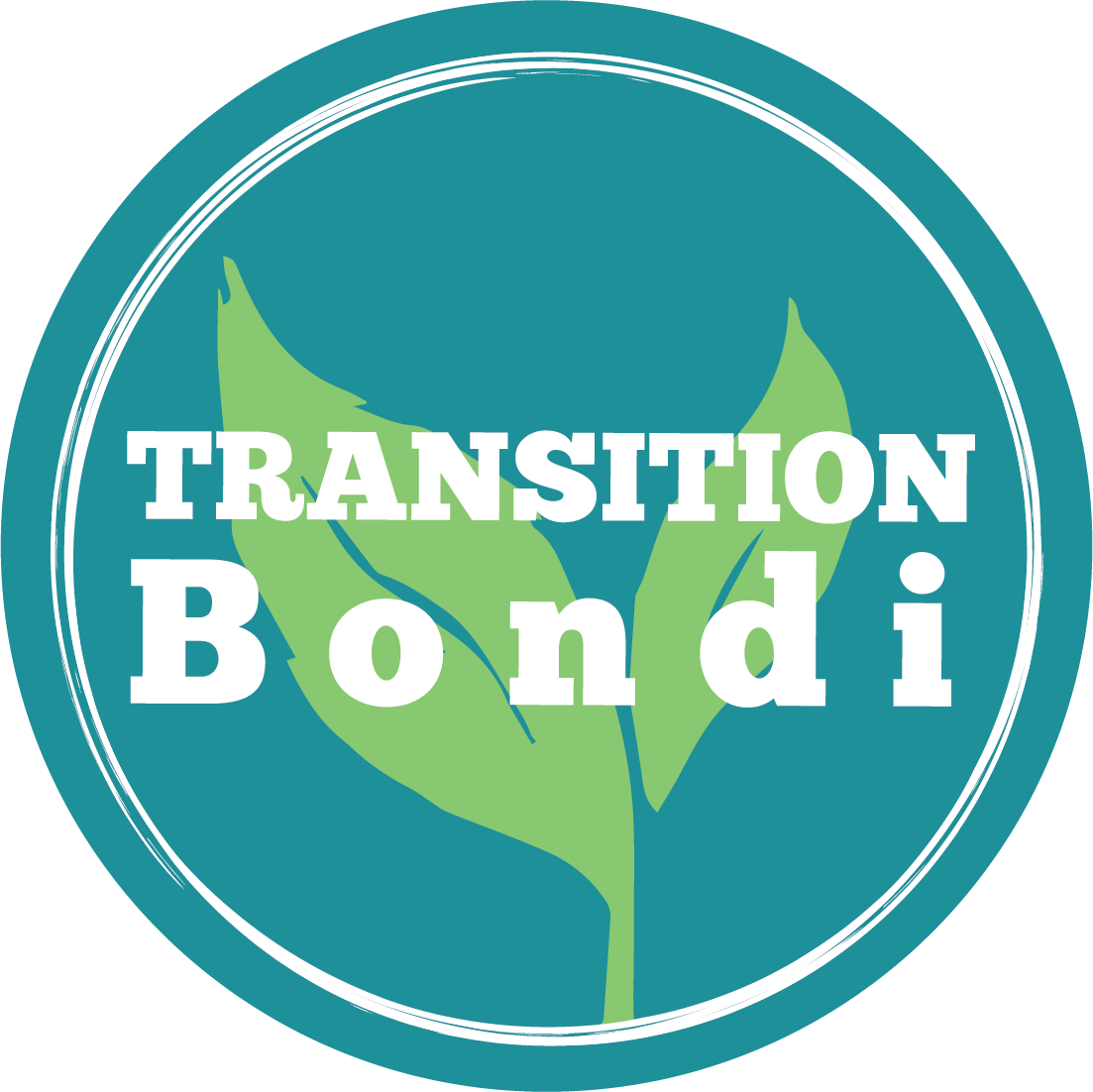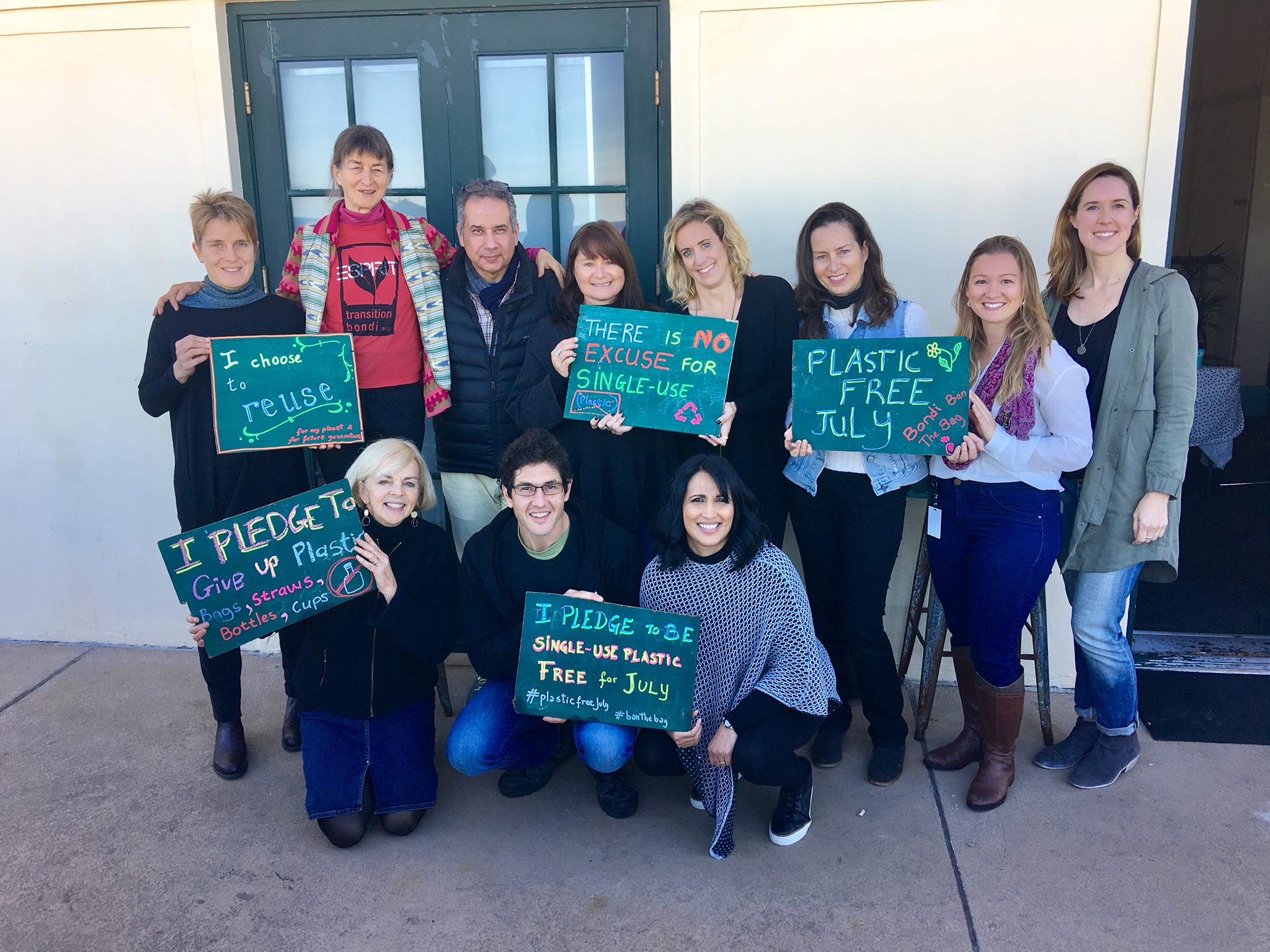Plastic Free July kicks off at the Bondi Pavilion
Words by Kit
Plastic Free July was launched with a bang, at Bondi Pavilion on the first Sunday in July. Around 150 people came, including a good two handfuls of very young people, who set the tone of the festive atmosphere.
The film “Clean Bin Project” carried us lightly through a range of issues around waste, behavioural change and supporting each other in our environmental activism! The film shows a couple who take on the challenge of creating as little waste as possible over the period of a year. Their strategies include refusing plastic bags in shops, buying only in bulk using their own reusable containers, not buying anything new, and eating at friends’ places. It is all done in a spirit of lively competition with each other, which adds fun to this significant undertaking.
After the film a panel of three speakers – Liz Macdonald, (facedownwaste.com), Dr. Mark Browne UNSW marine plastics researcher, and Jean Bailliard of Terracycle spoke about their areas of expertise.
Liz dedicates much thought to how we can change our behaviours in our daily lives, to reduce our landfill waste. Her advice is that to affect others, it is better to model sustainable practices than comment on others’ behaviour. We need to develop a new narrative, along the lines of “it’ll be fun, we’ll be happier and healthier”; rather than promote the stiffer and sterner polarizing messages that can be seen in the environmental movement. She added: “We need to design waste out of our lives. Information isn’t enough on its own; we respond to what others do around us.” A mentality of de-growth is needed, in this economy, where industry is supported by the growth model.
Mark told us that plastic is recognized as a pollutant under Australian law, but this is not being acted on through regulation. Nevertheless Australia is actually the envy of other countries who would like to have the standards that we have regarding classification.
A shocking fact from Mark was that cling wrap is deemed bad for health, even by the manufacturers! (There was someone in the foyer selling beeswax cling-wrap, a lovely substitute for that toxic but very convenient product.) He also said that although the effects of plastic are known, science is not used to communicating the problems it is measuring.
It surprised me to hear that micro-fibres from fabrics and carpets are a worse problem than plastic bags.
Jean of Terracycle assured us that everything can be recycled, but it’s the cost in setting up the facilities and processes that’s prohibitive.
Many good questions came from the floor, so the sense of group conversation was strong. How can people get more in touch with Nature? One response to this was about the Stages of Grief model of Elizabeth Kubler-Ross. In the face of the environmental destruction that is occurring, many people stay within the ‘denial’ phase. (Five stages are: denial, anger, bargaining, depression, acceptance ). Around those who are stuck in denial, we just have to wait for them to move forward, while continuing to work ourselves. In order to keep thinking fluidly we need to allow the feelings of grief to rise and be expressed rather than keeping them down and suppressing our true responses to a major crisis.
A lot to digest, and much to act on; and especially nice to meet many people, old and new.
Plastic Free July events and activities continue. The next Transition Bondi Film and Feast will be 20 July at the Bronte Surf Lifesaving Club – join us won’t you? Tickets are only $10 online, and children can attend at no cost.

